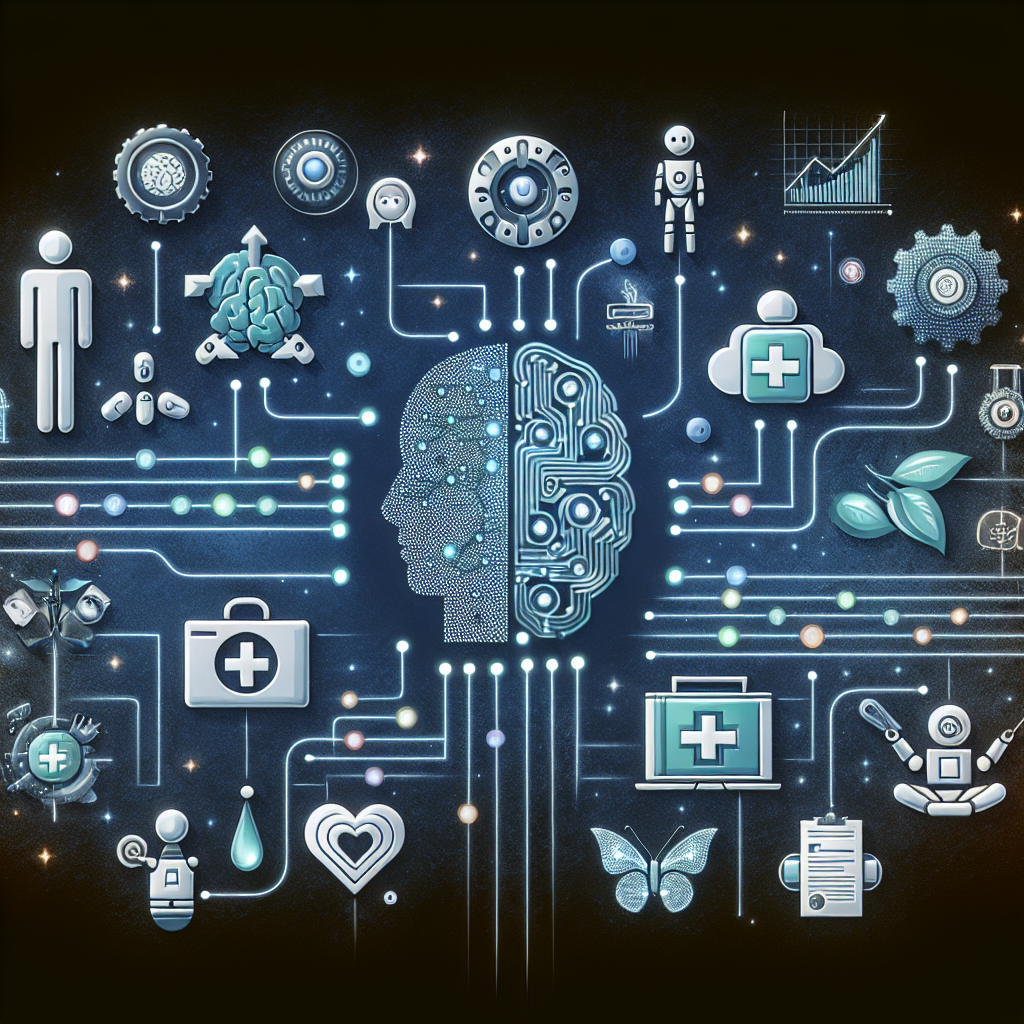As the field of artificial intelligence (AI) continues to advance, there is a growing interest in its potential applications in mental health treatment. AI has the ability to analyze vast amounts of data, identify patterns, and make predictions, which could potentially help improve the diagnosis and treatment of mental health disorders. However, along with the benefits, there are also risks associated with the use of AI in mental health treatment.
One of the main risks of AI in mental health treatment is the potential for bias in the algorithms used to analyze data. AI relies on algorithms to process and interpret data, and if these algorithms are biased, it can lead to inaccurate or discriminatory results. For example, if the data used to train an AI algorithm is not representative of the diverse population it aims to serve, the algorithm may not accurately diagnose or recommend treatment for individuals from underrepresented groups.
Another risk is the potential for privacy and security breaches. AI systems in mental health treatment often rely on collecting and analyzing sensitive personal information, such as medical records, genetic data, or even social media activity. If this data is not properly secured, it could be vulnerable to hacking or misuse, leading to serious consequences for individuals seeking treatment.
Furthermore, there is a concern about the potential for AI to replace human clinicians in mental health treatment. While AI has the potential to augment and support clinical decision-making, it cannot replace the human touch and empathy that is crucial in mental health care. Relying too heavily on AI could lead to a dehumanization of mental health treatment, reducing the quality of care for individuals in need.
In addition, there is a risk of over-reliance on AI in mental health treatment, leading to a loss of autonomy for individuals seeking help. If AI algorithms are making decisions about diagnosis and treatment without adequate oversight or input from human clinicians, individuals may not have the opportunity to advocate for their own needs and preferences in their care.
Despite these risks, there are also potential benefits to using AI in mental health treatment. For example, AI has the ability to analyze large datasets and identify patterns that may not be apparent to human clinicians, leading to more accurate and personalized treatment plans. AI can also help improve access to mental health care for individuals in underserved communities, by providing remote or virtual support through telehealth platforms.
Overall, it is crucial to carefully consider the risks and benefits of using AI in mental health treatment, and to ensure that ethical guidelines and regulatory frameworks are in place to protect individuals seeking care. By balancing the potential of AI to improve mental health treatment with the need to safeguard privacy, prevent bias, and maintain human-centered care, we can harness the power of AI to support individuals in their journey to mental wellness.
FAQs:
Q: How can bias in AI algorithms impact mental health treatment?
A: Bias in AI algorithms can lead to inaccurate or discriminatory results, potentially affecting the diagnosis and treatment of individuals from underrepresented groups. It is important to carefully evaluate and address bias in AI algorithms to ensure fair and equitable care for all individuals seeking treatment.
Q: What steps can be taken to protect privacy and security in AI-driven mental health treatment?
A: To protect privacy and security in AI-driven mental health treatment, data should be encrypted and securely stored, access should be restricted to authorized personnel only, and regular security audits should be conducted to identify and address vulnerabilities. Additionally, individuals should be informed about how their data will be used and have the opportunity to consent to its collection and analysis.
Q: How can AI be used to improve access to mental health care?
A: AI can be used to provide remote or virtual mental health support through telehealth platforms, making it easier for individuals in underserved communities to access care. AI can also help streamline the assessment and triage process, reducing wait times and ensuring that individuals receive timely and appropriate treatment.
Q: What role should human clinicians play in AI-driven mental health treatment?
A: Human clinicians should play a central role in AI-driven mental health treatment, providing oversight, guidance, and support throughout the treatment process. While AI can augment and support clinical decision-making, it is important to maintain a human-centered approach to care, ensuring that individuals receive the empathy and understanding they need to heal.

